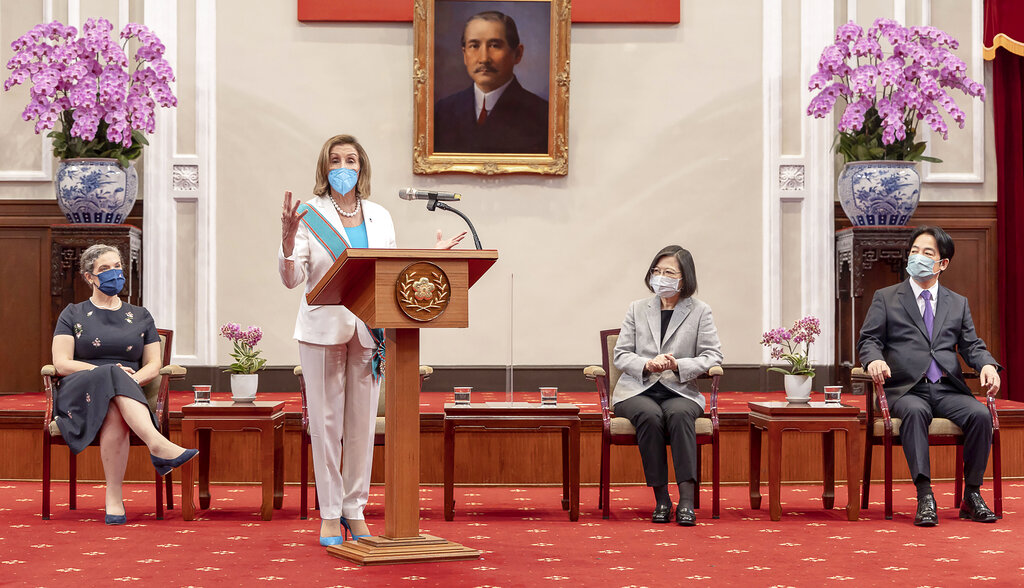China has halted dialogue with the United States on several areas including climate change and the military in retaliation for House Speaker Nancy Pelosi’s visit to Taiwan earlier this week.
The Chinese Foreign Affairs Ministry announced it would enact eight different measures in response to Pelosi’s visit, including suspending conversations between senior-level military commanders on cross-border crime, drug trafficking, and climate change, the ministry announced Friday. The retaliation comes in response to the House speaker visiting Taiwan earlier this week despite repeated warnings from China, which claims Taiwan is part of its territory while island leaders maintain it is self-governed.
WATCH: NANCY PELOSI ACCUSES CRITICS OF SEXISM AS SHE LEAVES TAIWAN

China also imposed undefined sanctions on Pelosi and her family members shortly after she left Taiwan, calling her trip “vicious” and “provocative.”
“Despite China’s serious concerns and firm opposition, Pelosi insisted on visiting Taiwan, seriously interfering in China’s internal affairs, undermining China’s sovereignty and territorial integrity, trampling on the one-China policy, and threatening the peace and stability of the Taiwan Strait,” a ministry spokesperson said in a statement.
Pelosi departed Taiwan around 6 p.m. local time on Wednesday, marking the end of a contentious trip that defied threats from China as well as warnings from U.S. officials. The Chinese military began to mobilize after Pelosi, the highest-ranking U.S. official to visit Taiwan in 25 years, landed on Tuesday, with China announcing plans to conduct military exercises around the island that prompted concerns among Taiwanese officials.
China launched 68 military aircraft and 13 vessels near the Taiwan Strait on Friday shortly after the country announced its decision to halt conversations with the U.S., with some of the aircraft crossing the median line. In all, Beijing has dispatched 138 war aircraft near Taiwan since Pelosi’s visit on Tuesday.
National Security Council coordinator John Kirby condemned the military action, calling it “irresponsible” and “at odds with our long-standing goal of maintaining peace and stability across the Taiwan Strait.”
“Nothing has changed about our China policy,” Kirby said in a statement. “We also made clear that the United States is prepared for what Beijing chooses to do. We will not seek and do not want a crisis. At the same time, we will not be deterred from operating in the seas and skies of the Western Pacific, consistent with international law, as we have for decades — supporting Taiwan and defending a free and open Indo-Pacific.”
CLICK HERE TO READ MORE FROM THE WASHINGTON EXAMINER
During her visit to Taiwan, Pelosi accepted an award from Taiwanese President Tsai Ing-wen on behalf of the U.S., emphasizing a partnership with the island is “crucial” amid the “struggle between autocracy and democracy in the world.”
Her short stop in Taiwan was part of a larger Asia trip that included stops in Singapore, Malaysia, South Korea, and Japan. During the tour, Pelosi and a group of lawmakers will focus on strengthening economic and security partnerships overseas and the “democratic governance in the Indo-Pacific region,” according to Pelosi’s press release.
